Why do old bookstores feel like home? Perhaps it’s Wabi-Sabi—the gentle art of finding beauty in imperfection, timeworn objects, and soulful simplicity.
You push open the heavy wooden door, and at once, the noise of the street behind you seems far away, a dream you can half-remember. This old bookstore has stood here for decades, quiet but proud, decorated with well-loved editions of books you read when you were little, when life seemed simpler. Each page has been touched, speaking of stories beyond the paper, like your grandmother’s smile lines, or the freckles on your cheeks from the summer past. It is an oasis, it wants you to spend time wandering the aisles, running your fingers along the old spines, taking the time you never feel you have.

You recognize the shopkeeper, and he smiles with familiarity. He has tended this store for decades, becoming an encyclopedia of knowledge and connection. There are customers you’ve seen here for years, customers the shopkeeper knows by name, who, despite the creation of new-wave bookstores, have remained loyal patrons and friends. Your feet anchor you to the present, but your mind wanders to the past, and at once you remember that you are both ever-changing, always transient. This, you could say, encapsulates the Japanese philosophy of Wabi-Sabi.
The Origins of Wabi-Sabi
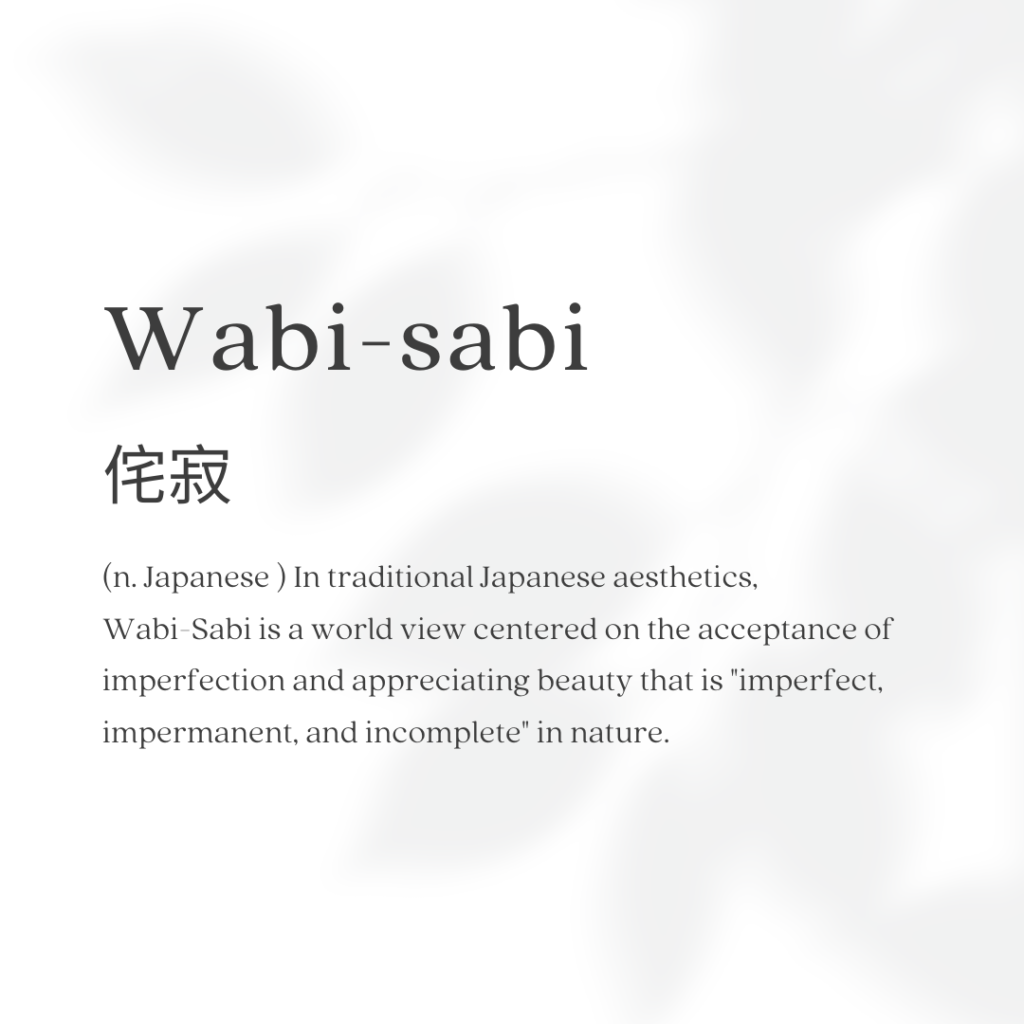
Wabi-Sabi is not easily defined, nor does it want to be. According to a legend, Wabi-Sabi originated from a story of Sen no Rikyū, a young man who wanted to learn the Way of Tea. Tea master Takeeno Joo tasked Sen no Rikyū with cleaning his garden. It was a test. Rikyū cleaned the garden immaculately, ensuring everything was in place. After regarding the pristine garden, he paused, then gently shook a tree, initiating a flurry of stray petals to fall aimlessly to the ground.
Rikyū saw the beauty in imperfection, in the connection to nature, and our shared impermanence. Wabi-Sabi does not wish to exist in a world of material, ostentatious things, in a world of consumption and inattention. Wabi-Sabi is like a vintage book in an old bookstore, well-loved, with tea-stained pages, tucked lovingly into a wooden shelf. It seeks beauty in that which is often overlooked. The world values youth, shiny new things, shiny new people. It forgets that to be human is to be impermanent, to be human is to be imperfect.
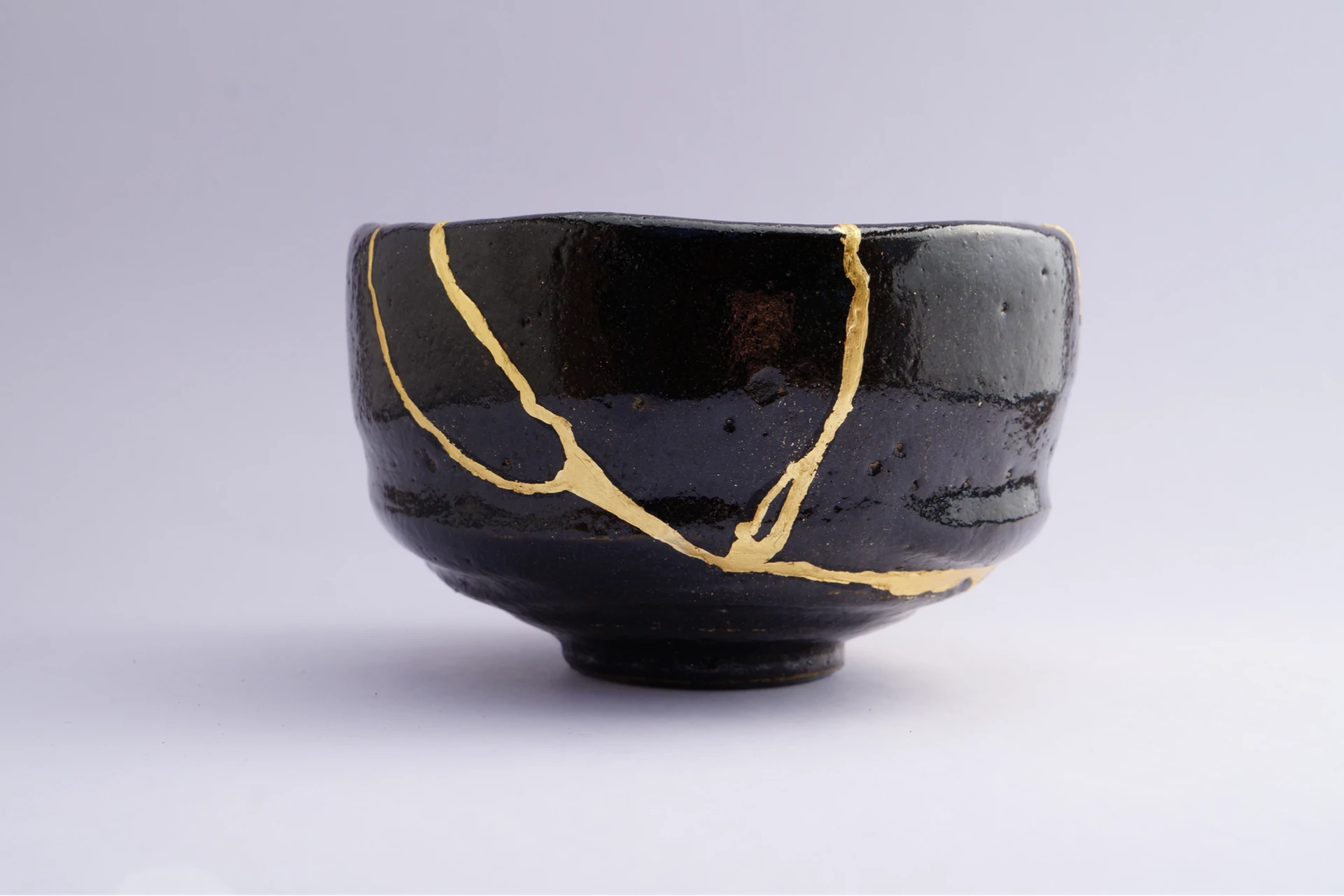
The Beauty of Impermanence
A bouquet of red roses will lose its color with each passing day. Their heads will droop, their petals will fall, and eventually, they will wither and pass. Their brief existence was magnificent, but their beauty is undeniably tied to its finite nature. Life is precious because it ends. Knowing and recognizing our own impermanence can be frightening, but it is also liberating.
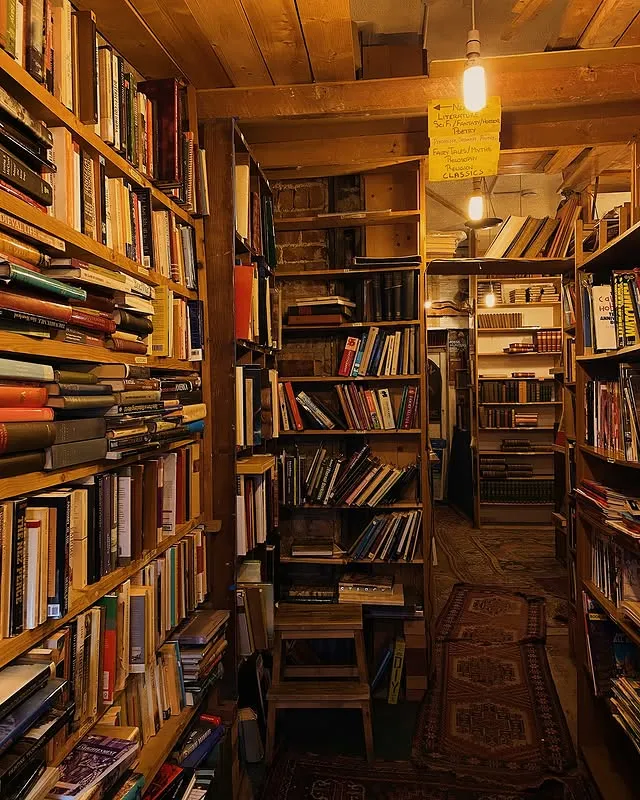
We must be mindful of the time; we must strive to hold the sand in our fingers as it gently filters through. Old bookstores remain, but their interiors are filled with this sense of impermanence; they mirror life in a way that our technological, fast-paced world seeks to eradicate. These old bookstores welcome and value aging, the sageness of lived experience, and encapsulate the Wabi-Sabi approach to life.

Practising Wabi-Sabi in the Age of Technology
Our world feeds on anxiety. With every phone vibration, we are reminded of another new and often depressing news update, loading our brains with information they were never meant to deal with. The world of technology moves quickly, so fast we can barely catch up.

Our world may continue technologically advancing, but slow-living philosophies like Wabi-Sabi remind us to slow down, take a breath, and act as if we are meandering the aisles of an old bookstore. Wabi-Sabi has persisted since the 15th century, and even though we may not be Buddhist monks learning the art of tea, it is a philosophy that remains valuable, perhaps now more than ever before.
Of course, there are tasks in our day we must accomplish, there are deadlines, and there is pressure. Yet practitioners of Wabi-Sabi would tell us that we can still find time to ground ourselves, to strive for excellence rather than perfection, to value simplicity.
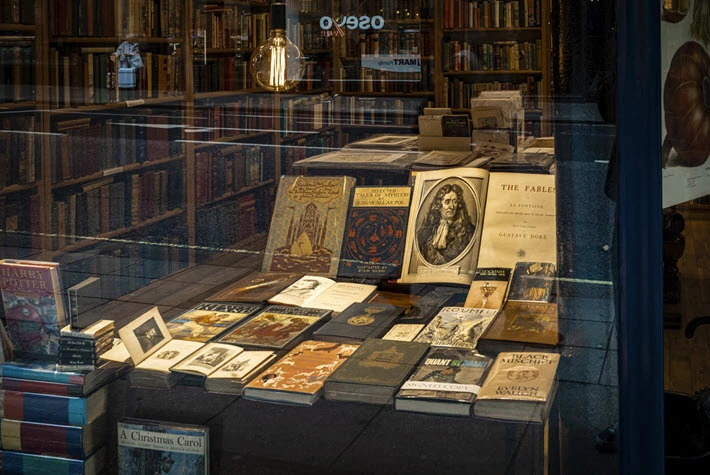
Some may wonder how old bookstores still exist, how they have not been swallowed up by other commercial giants with their megastores and cheap prices. The answer – connection, be it earthly or human, will never become obsolete. It will always be in our human nature to find spaces to connect, share knowledge, and ground ourselves in items that are not respected solely for their beauty or capital.
The Healing Power of Nostalgia

We do not wish to live in the past and thereby miss the present, but there is purpose in remembering the past. Like in Nina George’s novel The Little Paris Bookshop, the protagonist Jean’s reminiscence is both his hindrance and strength. Happiness demands a balance of both. The philosophy of Wabi-Sabi encourages us to accept life as it is, not how we wish it to be, and helps guide us to a journey of acceptance.
Psychological studies have found the feeling of nostalgia to be felt positively, warmly, like an old friend or a book you loved as a child. Sitting in these moments of reminiscence not only increases optimism toward the future but has also been found to positively affect our self-esteem.
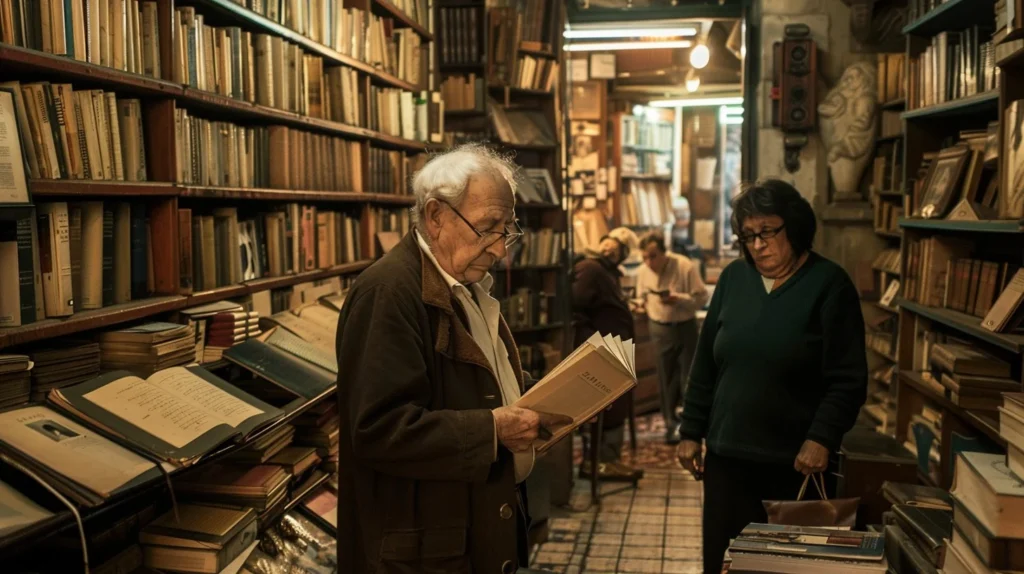
Perhaps this is why we feel old bookstores are oases, because they provide a quiet space in which we can accept and appreciate the passage of time. Where we feel a genuine emotional connection, a type of nostalgia that hasn’t been manufactured for capital gain but is instead a rare moment of authenticity. Old bookstores sustain communities, they are a space for dialogue and connection, and are a quiet, but purposeful, step towards a slower, simpler, Wabi-Sabi way of life.
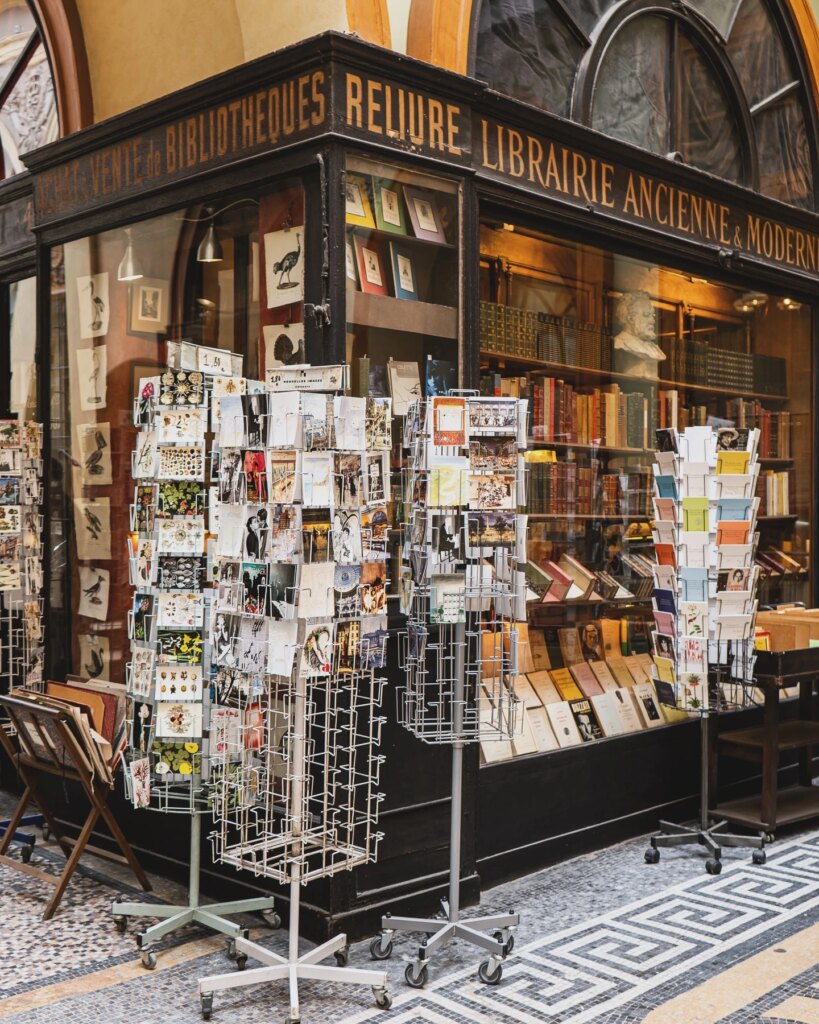
Join our community of 1.5M readers
Like this story? You'll love our free weekly magazine.








